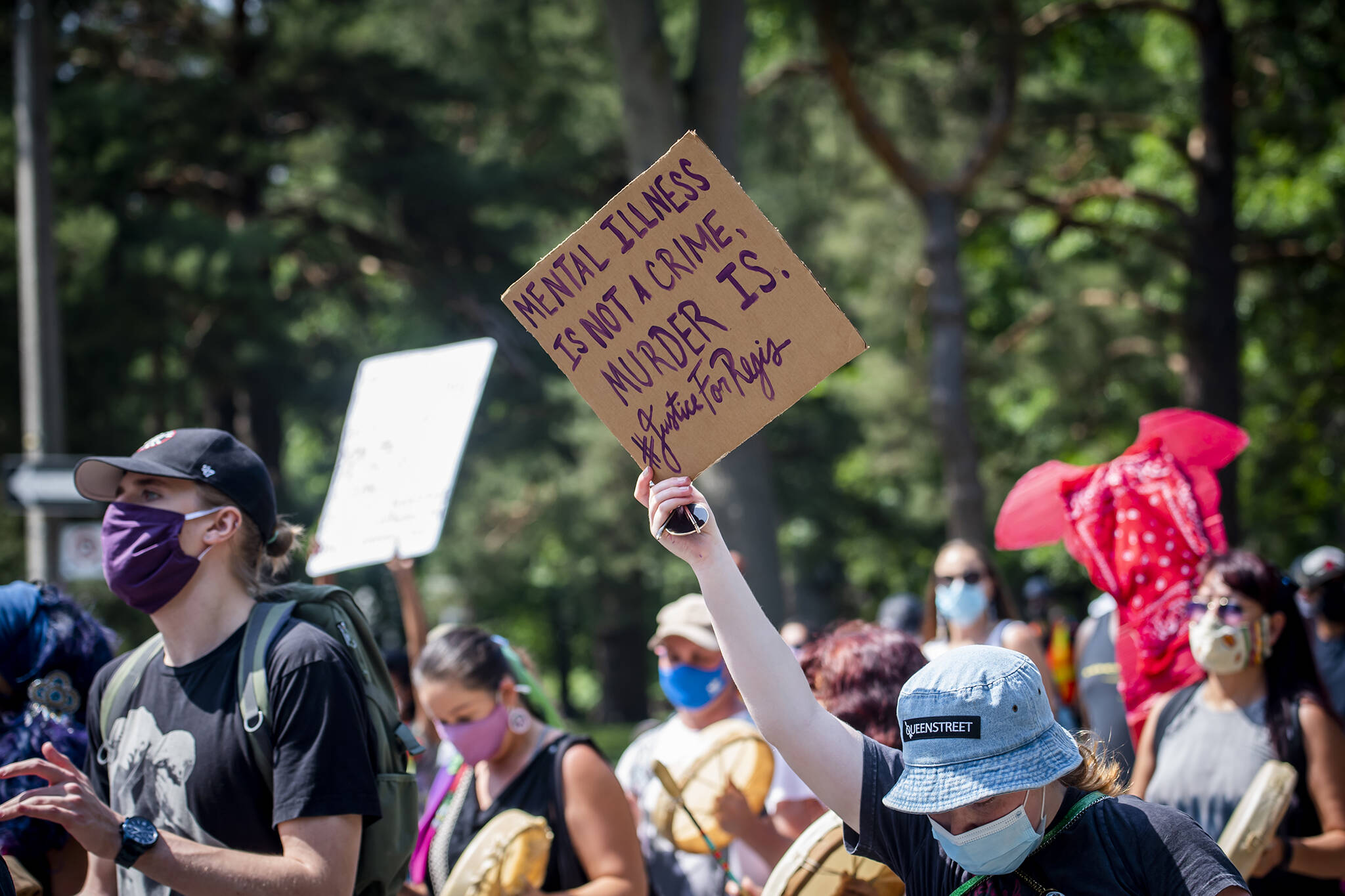
Toronto is changing the way 911 works to better support those struggling with mental health
It's been more than a year since the death of Regis Korchinski-Paquet, the 29-year-old woman who fell from a High Park balcony during an encounter with police that had been called by family to help her through a mental health crisis.
The incident was just one of many in which BIPOC and/or those struggling with mental health issues at home and abroad lost their lives while dealing with officers, and led to protests, calls to defund police, and demands for better responses to such situations, including dispatching unarmed mental health professionals and community workers.
As the Toronto Police Service assessed how it could confront any inherent anti-Black racism among its ranks, it also considered how it could change the way it responds to those in crisis, ultimately making the decision this week to try out a new pilot project that will change how 911 calls are handled in the city.
The TPS & @GersteinCrisis Centre are collaborating to respond to people in crisis calling 9-1-1 with non-emerg mental health needs.
— Toronto Police (@TorontoPolice) June 24, 2021
The pilot project will see both working together to divert non-emerg mental health calls away from police response.
More: https://t.co/ajB9zRPHTl pic.twitter.com/OiVemub1bu
Over the course of the next year, select calls to emergency services will be redirected from police to the Gerstein Crisis Centre, a tenured organization that has specially trained people more equipped to deal with residents in specific types of distress.
The centre can send social workers and other non-police responders, offer referrals to third-party resources, and can also team up with the cops for more well-rounded and comprehensive responses if police are found to be necessary (such as in the case of Korchisnki-Paquet, in which a weapon was initially reported).
At today’s @TPSBoard mtg @TorontoPolice introduced our Crisis Call Diversion Pilot, 1 of 81 Recommendations on Police Reform. It creates an alternative, non-police response to mental health calls. A great example of what’s possible when we partner w/ experts like @gersteincrisis
— Chief James Ramer (@jamesramertps) June 24, 2021
TPS Deputy Chief Peter Yuen called the new partnership a way of "addressing an appeal from the mental health community to explore alternative models of mental health crisis response" in a statement on the subject released Thursday.
Representatives from the Gerstein Centre reiterated in the same release that they strongly support a model in which "the earliest intervention for mental health needs are provided by a mental health worker rather than the police service," leading to more appropriate support and cutting out unnecessary police involvement.
A large part of policing is dealing with mental health and families in crisis. Community policing is better equipped and safer for dealing with those issues. In almost every other developed country, armed police do not respond to those problems.
— Vinylfan (@Vinylfan3) June 23, 2021
The program is similar to one being launched by the city itself that will send members of one of four crisis support teams to respond to the same types of 911 calls starting in 2022.
Hector Vasquezx
Latest Videos
Latest Videos
Join the conversation Load comments







